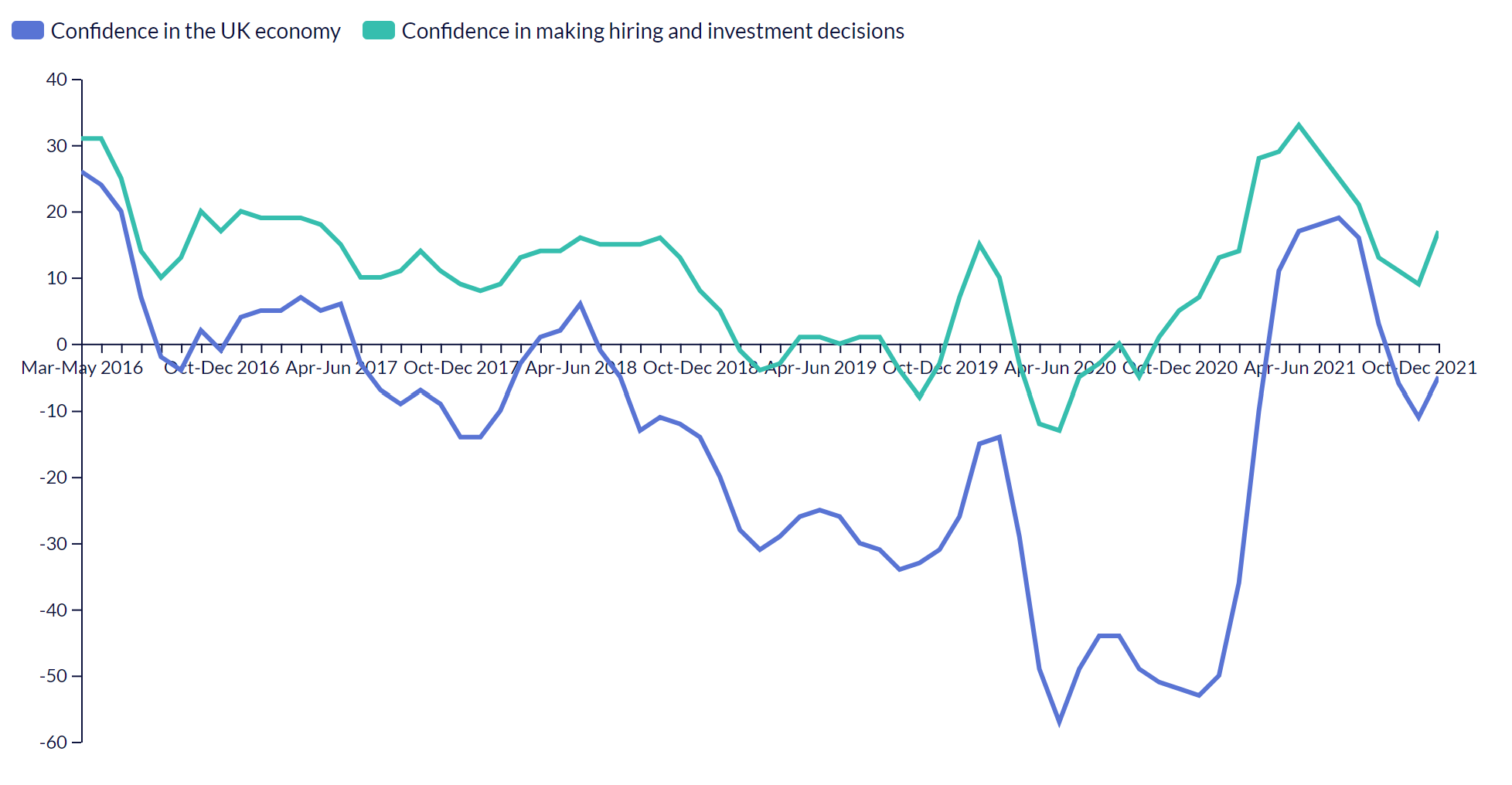In November 2021-January 2022, business confidence in the UK economy rose by six percentage points from the previous rolling quarter, to net: -5. In January, employers’ confidence levels turned positive (net: +1). This suggests more positive expectations for the economy in 2022, despite the threat of rising inflation and labour shortages.
The REC’s latest JobsOutlook survey also found that employers’ confidence in making hiring and investment decisions rose to net: +17 in the three months to January. This was eight percentage points higher than the previous rolling quarter.
With somewhat improved confidence levels, employers’ intentions to hire permanent staff increased further. Hiring intentions in the short term increased by four percentage points to net: +24, and medium-term demand rose by five points to net: +24.
However, hiring intentions remained highest for temporary workers in the short term, at net: +28. Temps will play a vital role in keeping businesses going as they adjust to the new normal. The role of temporary work in providing incomes and flexibility as we deal with cost of living increases should not be underestimated. Employers need more staff and temporary work can offer the increased income people need while maintaining other commitments such a family or caring responsibilities.
Neil Carberry, Chief Executive of the REC, said:
“As we entered 2022, activity in the UK jobs market continued to surge. With the worst of the Omicron wave behind us, employers feel a little more optimistic about the state of the economy. And the majority are desperate to hire, and not just permanent staff. Temporary workers are in high demand as businesses try to kick-start this year’s growth.
“But there is a huge participation gap in the labour market right now. Firms must make workforce planning their number one priority. That means putting serious effort into attracting candidates from a wider variety of backgrounds, training workers to fill the gaps, and retaining their best talent. Hybrid and remote working will be one part of that – we know that more workers are demanding it. But other benefits, conditions and development opportunities are also vital parts of a successful people strategy.
“Government must play its part too by urgently overhauling the skills system – including broadening the apprenticeship levy. Politicians must ensure we are building the skills base the UK will need in the future. Without it, we cannot hope to level up the UK economy in the long term.”
Other stats from the latest JobsOutlook include:
- Hiring intentions for temporary workers in the medium term remained robust at net: +19.
- In January, three in ten (31%) employers reported that candidates they have interviewed since the pandemic began in March 2020 preferred some form of hybrid working. Just 13% would rather work exclusively from home. The strongest preference was to be predominantly at business premises with some remote/home working (17%).







